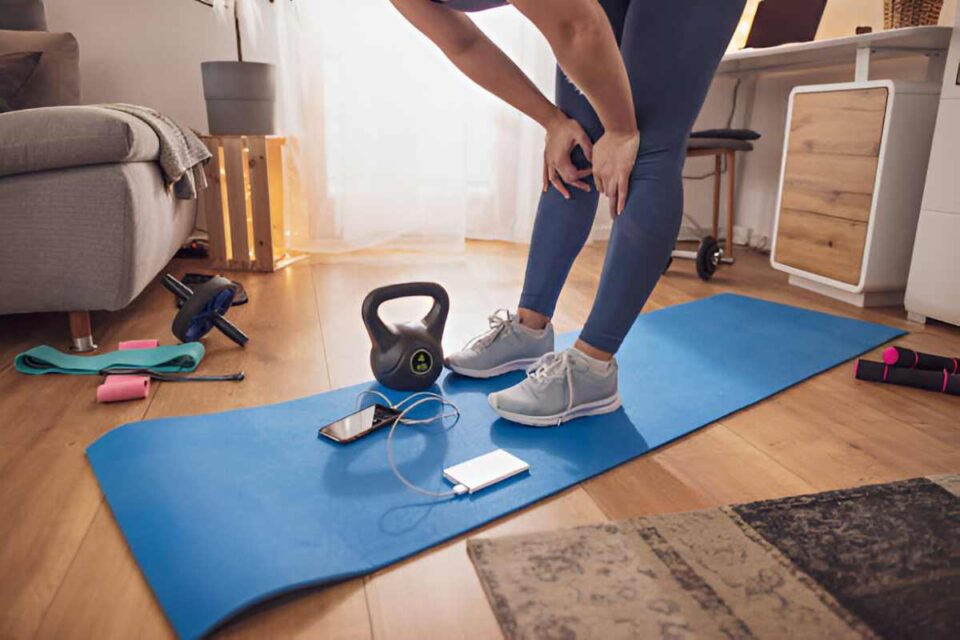“Am I supposed to feel this tired?”
You’re doing the right thing.
You’ve started a new medication to help with weight management. You’re showing up at the gym, dusting off your sneakers, even drinking more water than usual.
But suddenly, your workout feels harder.
You’re lightheaded during warm-ups.
Your stomach’s doing somersaults halfway through a walk.
And motivation? Gone by 3 p.m.
If this sounds familiar, you’re not imagining it.
Some people experience Zepbound side effects—like nausea, fatigue, or dizziness—that can directly affect how your body responds to exercise. That doesn’t mean you have to hit pause on movement altogether. But it does mean you may need to make a few smart adjustments.
Here’s what to know—and how to keep your body moving without pushing it past its limits.
Table of Contents
First, Know What You’re Dealing With
Medications in this class are designed to help with weight loss by mimicking certain gut hormones that regulate appetite and insulin. That’s good for metabolism—but it can come with some gastrointestinal side effects.
The most common include:
- Nausea
- Fatigue
- Constipation or diarrhea
- Dizziness or low energy
- Loss of appetite
These symptoms often peak in the first few weeks of treatment or after a dose increase. They can also be affected by your workout intensity, what (and when) you eat, hydration levels, and sleep quality.
Translation: timing and pacing your workouts is key.
Rethink the “When”
If you used to hit the gym early in the morning on an empty stomach—now might be the time to re-strategize.
Here’s why:
- Low food intake = less fuel for workouts
- Nausea tends to be worse early in the day for some
- Fatigue can make fasted workouts feel 10x harder
Try this instead:
- Exercise 1–2 hours after a light meal or snack
- Choose a time of day when you typically feel your best (for some, that’s late morning or early evening)
- Avoid working out right after dosing, especially if your medication causes immediate GI symptoms
Everybody is different—but tracking your own energy windows can make all the difference.
Shift from “No Pain, No Gain” to “Feel-Good Movement”
Here’s the deal: this isn’t the time to punish your body. You’re already navigating metabolic changes, digestive shifts, and a new medication.
Instead of high-intensity sprints or bootcamp circuits, focus on sustainable, gentle movement—especially in the early stages.
Start with:
- Walking (yes, it counts!)
- Yoga or mobility work
- Swimming or water aerobics
- Low-impact strength training with lighter weights
- Cycling at a relaxed pace
These activities support circulation, digestion, mood, and joint health—without draining your energy or making nausea worse.
Once your body adapts, you can gradually increase intensity based on how you feel.
Hydration = Not Optional
One of the lesser-discussed Zepbound side effects? Dehydration risk.
If you’re eating less and dealing with digestive issues, chances are you’re not getting enough fluids—or electrolytes.
This becomes a bigger problem when you’re sweating, especially during longer or warmer workouts.
To counter this:
- Aim for 64–80 oz of water daily, more on workout days
- Consider an electrolyte supplement if you’re sweating heavily
- Sip fluids before, during, and after exercise—not just when you’re thirsty
- Watch for signs of dehydration: dizziness, cramps, headache, fatigue
Pro tip: a little salt on your food and a banana post-workout go a long way.
Listen to Your Body (Yes, Really)
One of the most powerful tools during your weight loss journey isn’t a workout app—it’s your own body awareness.
Here’s what that might sound like:
“I feel good on my walk, but I start cramping 20 minutes in.”
→ Cut back to 15 minutes and build slowly.
“I get nauseous every time I work out after lunch.”
→ Shift your workout to later or choose lighter movement.
“I feel like I should be doing more.”
→ There’s no gold star for burnout.
Consistency beats intensity—especially when your body is adjusting to a medication with real physiological effects.
Final Thought: Respect the Adjustment Phase
Yes, side effects can be frustrating.
Yes, it’s tempting to push through.
But sustainable health isn’t built in one high-intensity workout—it’s built in the slow, patient practice of showing up in ways that your body can handle today.
So if you’re dealing with Zepbound side effects and wondering how to stay active without making symptoms worse, here’s your permission slip:
Move gently. Stay hydrated. Rest often.
You’re still doing the work.
Because wellness isn’t just about weight—it’s about how you feel on the way there.
Also read: Exploring Health and Beauty Insights at AioTechnical.com

